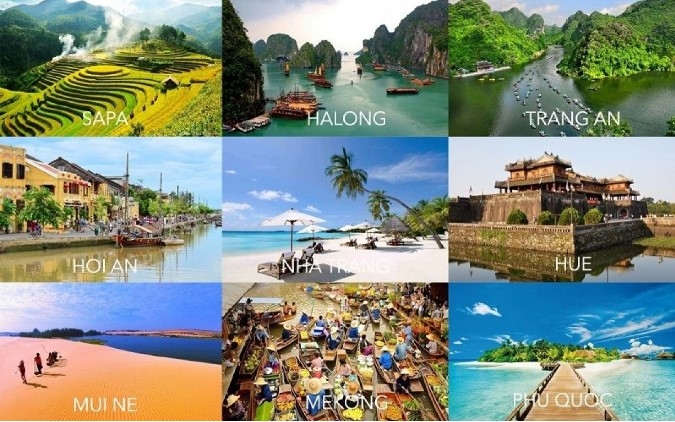
This robust digital infrastructure is therefore enabling the country to tap into innovative solutions, offering both convenience and efficiency to travelers and service providers alike, it said.
As one of the fastest-growing digital economies in ASEAN, Vietnam has embraced digital transformation initiatives championed by the Government and key stakeholders operating within the tourism industry. Technologies such as the Internet of Things (IoT), artificial intelligence (AI), virtual and augmented reality (VR/AR), and big data are in the process of revolutionising the sector.
These advancements not only optimise visitor experiences, but also streamline operations for tourism service providers, aligning with the broader goals of sustainable development whilst boosting collaboration between stakeholders in a bid to create a more resilient and adaptable tourism ecosystem.
The article also cited a recent report on Vietnamese people's travel habits, which highlights that tools such as digital maps, e-wallets, and online travel agents (OTAs) are widely used.
These tools have become essential for modern travelers, offering seamless navigation, cashless transactions, and convenient booking options. While more advanced technologies such as e-tickets, virtual assistants, and smart hotel services are still in the early stages of adoption, their growing presence is transforming travel into a more interactive and personalised experience.
Local authorities have also recognised the role of digitalisation in boosting tourism. Digital travel platforms and mobile applications now allow visitors to explore destinations, book accommodations, and access travel information with ease. These tools not only simplify travel planning, but also contribute to the nation’s appeal as a tech-savvy destination, the article said.
According to the article, the Vietnamese tourism industry has witnessed remarkable growth over recent years. In the first 11 months of this year alone, the country welcomed over 15.8 million international tourists, marking a 41% increase compared to the same period from 2023. Popular destinations such as Ho Chi Minh City, Phu Quoc, Da Nang, Hanoi, and Nha Trang continue to attract visitors, thanks in part to their integration of digital tools and platforms which work to enhance visitor experiences.
Looking ahead, the Vietnamese tourism sector is poised to further leverage digital innovation. Continued investment in emerging technologies, combined with a strong focus on improving user experience, are likely to ensure that the nation remains competitive in the global tourism market. At the same time, fostering digital literacy and building a resilient technological infrastructure will be key to sustaining long-term growth.
With an ambitious target of welcoming 17 million to 18 million international visitors by the end of the year, the nation’s commitment to digital transformation in tourism serves as a model for other emerging markets. By embracing technology and prioritising sustainable practices, the country is well on its way to becoming a leading travel destination in the digital era, it concluded.





